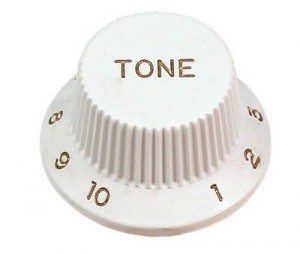 In a recent blog post I commented that for me, the major difference between mood and atmosphere comes down to this: a mood exists primarily within a person; an atmosphere exists primarily in a place.
In a recent blog post I commented that for me, the major difference between mood and atmosphere comes down to this: a mood exists primarily within a person; an atmosphere exists primarily in a place.
Now it’s time to turn my attention to tone. The first thing that springs to mind for most people is ‘tone of voice’. You can tell how a person is feeling by the way they say something, how loud or soft their voice is, how fast or slow they speak, by the words they choose and of course if you’re in the same room as the speaker you tune in to their body language and facial expression as well.
Tone in writing is a more complicated beast.
You are trying to figure out the writer’s attitude and feelings towards the topic at hand but the clues to figuring out how they feel are often more subtle than spoken language and the reader must establish the tone without the help of body language, facial expressions, volume and speed of delivery.
So let’s do a little experiment.
Imagine the school receives a phone-call from a parent complaining about some aspect of my teaching. I decide to reply in writing. I have almost endless options open to me in terms of the tone I adopt when I reply – and for the record I don’t buy into the notion that text messages inherently have no tone. They can capture your feelings if you are careful enough when you compose them!
Now look at several potential replies below. To protect the anonymity of my fictional accuser I’ll just refer to them as ‘parent’!
1. Dear Parent,
I wish to apologise unreservedly for accusing your daughter of cheating. I realise that she is a diligent student who simply wished to have the ‘right’ answer, hence her decision to pass off internet research as her own work. However, if she wishes to improve her mastery of this subject and her overall literacy, in future she will need to use this material to write her own responses rather than relying entirely on other people’s expertise.
Sincerely,
Ms. O’Connor
OR
2. Dear Parent,
I am writing in response to your recent complaint that I unfairly accused your daughter of cheating. To be precise I accused your daughter of plagiarism as the homework assignment she submitted two weeks late was copied word for word off the internet. All it takes is a simple google search with one sentence of such plagiarised material to reveal the truth, which is that your daughter did in fact cheat. I suggest in future you spend more time assisting your daughter with her homework and less time phoning our school with baseless complaints which are a waste of my time.
Yours etc,
Ms. O’Connor
OR
3. Dear Parent,
Following your recent communication with school management about your daughter’s homework, I wish to arrange a meeting with you, your daughter and if possible your partner to discuss this issue. I realise that not everyone understands the seriousness of plagiarism but I believe this is an important issue that all of our students need to understand, particularly in this era of ubiquitous content freely available online.
Yours faithfully,
Ms. O’Connor
OR
4. Dear Parent,
Following consultation with my union and their legal representatives, I will not be responding personally to your complaint about my teaching. However, my solicitor will be in contact shortly in relation to slanderous comments made by you in the comments section of our school’s website and on facebook.
I look forward to resolving this matter fully,
Ms. O’Connor
Now ask yourself, what tone have I adopted in each fake letter? Belligerent? Rude? Arrogant? Apologetic? Conciliatory? Defensive? Aggressive? Patronising? Are some of the letters a combination of different tones? Why did I use different methods of signing off in each example? If this really did happen, which tone should I adopt?
Being aware of your tone is really really important in life, no matter who you are or what job you do. If you come across as arrogant and belligerent people simply won’t like you as a person. On the other hand if you assume that you are always the one in the wrong when conflict arises then people may simply walk all over you!
The important thing is to tune in to your own tone particularly when writing because once it’s published you can’t take it back. Be self-aware and perhaps even get someone else to look over your work before submitting it into the public domain. The fact is other people do make judgements about you based on the tone you adopt both in spoken and written communication so the better you become at identifying and controlling tone the better.
Here’s a link to a very good powerpoint with various examples of different tones in writing:




